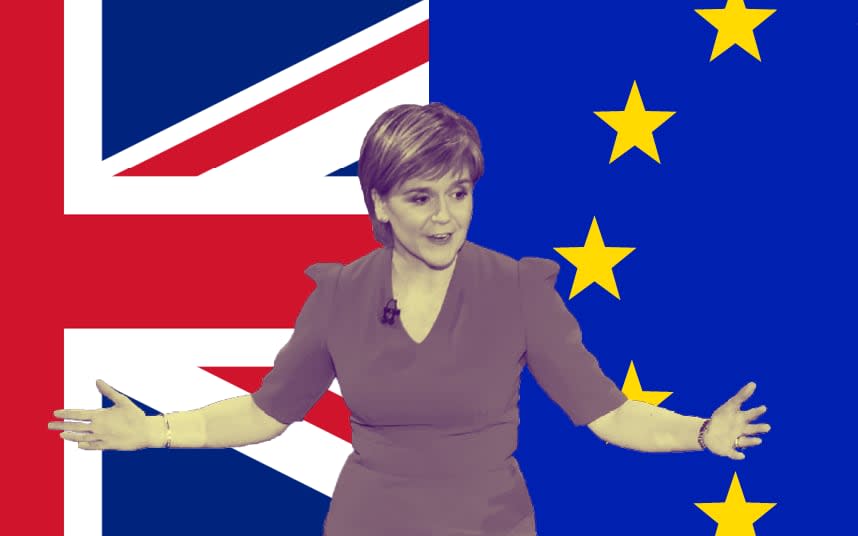Scottish independence: Could pro-EU No voters swing it for Sturgeon in a second referendum?

Since the UK's vote to leave the European Union on June 23, Nicola Sturgeon has been courting the possibility of Scottish independence, saying Brexit made it "highly likely".
The Scottish First Minister has now announced that she will trigger the formal process to begin a second independence referendum next week, to be held when Brexit negotiations are concluded.
But despite expectations that pro-EU Scots would shift the balance towards Scottish independence after the Brexit referendum, data from the polling website What Scotland Thinks shows that this hasn't taken place.
If there were a referendum today, the result wouldn't be very different from the last vote in 2014, when 55.3 per cent voted No, against independence. Polling has consistently reflected this outcome across the last year, with Scottish independence rarely being the more popular option.
Brexit complicates the independence picture
While Scotland would likely vote to remain in the UK at the moment, Brexit - especially the possibility of a hard Brexit - makes the situation more complicated.
Last June, 62 per cent of Scotland voted to Remain in the EU - something the SNP has used to argue that the political will of Scots is being ignored.
Polling by YouGov late last year has shown how the majority of Scottish people backed remaining in the UK within the European Union across the referenda in 2014 and 2016.
Scottish polling on Brexit and independence
The largest segment, making up around 28 per cent of Scottish voters, contains those who voted against independence in 2014 and then voted to remain in the EU in 2016.
This compares to the two smallest groups - the 14 per cent that voted for Scottish independence and Brexit, as well as the 16 per cent that voted for the Union and Brexit - that show how there is little appetite for leaving the EU in Scotland.
Who does Sturgeon have to convince to make Scotland independent?
In order to win a second referendum, Nicola Sturgeon will have to convince the largest group - the pro-EU, anti-independence voters - to vote against the status quo this time round.
The data shows it's a big ask. Sturgeon would have to win over these pro-Union Remain voters while ensuring, at the same time, that SNP-supporting Brexit voters were not alienated.
The number that would swing to independence is outnumbered by those that would swing the other way
But Sturgeon believes that the possibility of a hard Brexit could do just this.
She said: "We have not met with a Government and a Prime Minister who is willing to meet us half way [, ...] they have moved away from compromise with language that has appeared to become harder and harder."
How Brexit impacts Scottish independence voting
Pro-EU No voters looking unlikely to change their minds
Polling by YouGov, however, shows that Sturgeon might struggle.
Most pro-EU No voters are still against independence, with just 12 per cent of them saying they'd now vote Yes. A further 14 per cent said they didn't know, while three quarters would still vote for the Union.
The number that would swing to independence is actually outnumbered by those that would swing the other way. A quarter of those that voted for Brexit and Scottish independence would now vote No.
This accounts for a swing of 3.5 per cent to the "No" camp in a Scottish independence referendum, compared to the 3.4 per cent swing to "Yes" that is accounted for in those anti-independence Remainers that would now vote for an independent Scotland to stay in the EU.
Even though this polling - conducted in the last three months of 2016 - pre-dates several key announcements relating to the UK Government's Brexit strategy, it does give an insight into how little appetite there seems to be for another Scottish referendum.
Independence campaigners, however, would argue that the nationalists started the last campaign at 32 per cent in early 2013 and increased this to 45 per cent by September 2014. Another campaign could increase momentum further in the current climate.
When asked about such polling in Scotland, Sturgeon said she believed she could win the referendum and that "it's right for Scotland to have a choice" when faced with a potential hard Brexit from the Prime Minister's negotiations.

 Yahoo News
Yahoo News 
